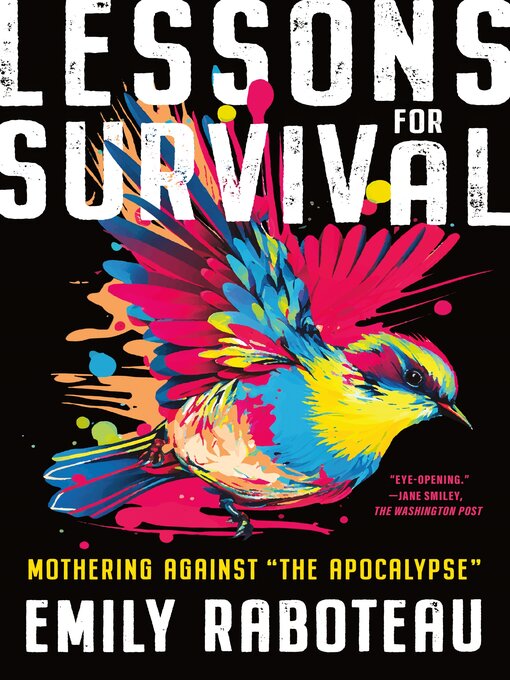Award-winning author and critic Emily Raboteau crafts a powerfully moving meditation on race, climate, environmental justice—and what it takes to find shelter.
Lessons for Survival is a probing series of pilgrimages from the perspective of a mother struggling to raise her children to thrive without coming undone in an era of turbulent intersecting crises.
With camera in hand, Raboteau goes in search of birds, fluttering in the air or painted on buildings, and city parks where her children may safely play while avoiding pollution, pandemics, and the police. She ventures abroad to learn from Indigenous peoples, and in her own family and community, she discovers the most intimate examples of resilience. Raboteau bears witness to the inner life of Black womanhood, motherhood, the brutalities and possibilities of cities, while celebrating the beauty and fragility of nature. This innovative work of reportage and autobiography stitches together multiple stories of protection, offering a profound sense of hope.
- Available now
- Time to Brush Up On Some Classics?
- New eBook additions
- New kids additions
- New teen additions
- Most popular
- Try something different
- Series Starters: Mystery (ebooks)
- See all ebooks collections
- 2025 Audie Winners
- New audiobook additions
- Available now
- New kids additions
- New teen additions
- Celebrity Readers
- Quick Listens
- Series Starters: Mystery (audiobooks)
- See all audiobooks collections
- Home & Garden
- Tech & Gaming
- Business & Finance
- Fashion
- Health & Fitness
- Travel & Outdoor
- Celebrity
- Food & Cooking
- Family & Parenting
- News & Politics
- Photography
- See all magazines collections




